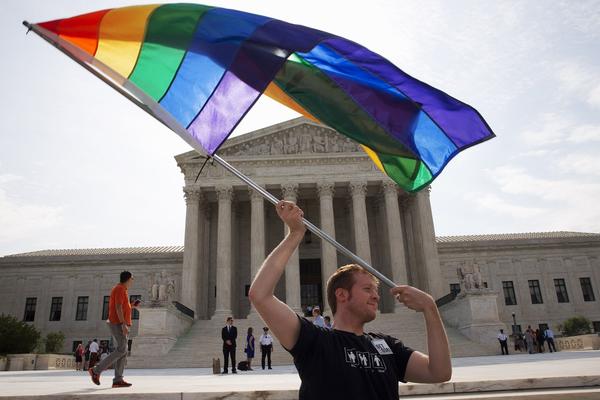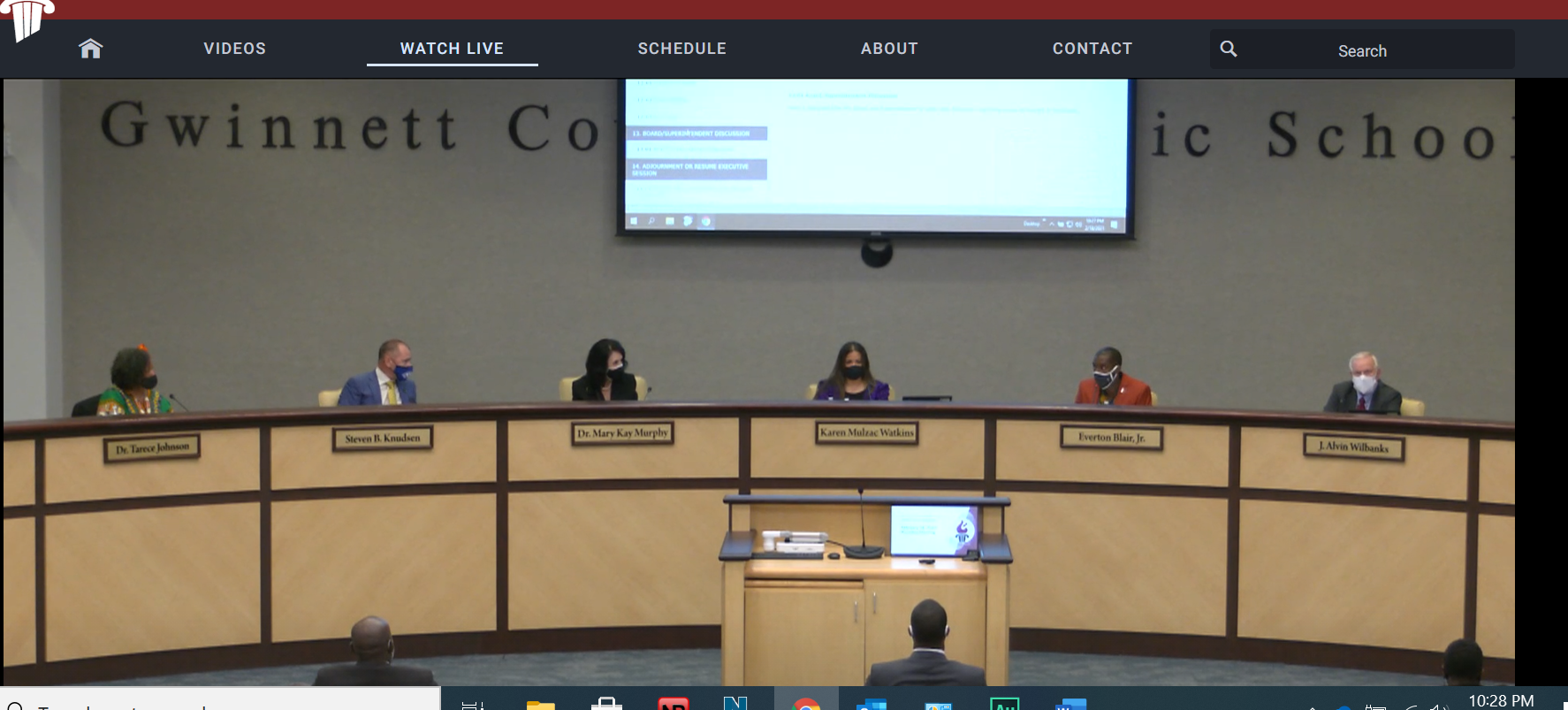Supreme Court Extends Same-Sex Marriage Nationwide

The Supreme Court has declared in a 5-4 ruling that same-sex couples have a right to marry anywhere in the United States.
Gay and lesbian couples already can marry in 36 states and the District of Columbia. The court’s ruling on Friday means the remaining 14 states, in the South and Midwest, will have to stop enforcing their bans on same-sex marriage.
The states affected by the ruling are: Alabama, Arkansas, Georgia, Kentucky, Louisiana, Michigan, Mississippi, most of Missouri, Nebraska, North Dakota, Ohio, South Dakota, Tennessee and Texas.
The cases before the court involved laws from Kentucky, Michigan, Ohio and Tennessee that define marriage as the union of a man and a woman. Those states have not allowed same-sex couples to marry within their borders and they also have refused to recognize valid marriages from elsewhere.
The outcome is the culmination of two decades of Supreme Court litigation over marriage, and gay rights generally.
Justice Anthony Kennedy wrote the majority opinion, just as he did in the court’s previous three major gay rights cases dating back to 1996.
Two previous rulings by the high court also came on June 26.
In 2003, the court issued its ruling in the case Lawrence versus Texas, striking down state laws that made gay sex a crime.
And on the same date in 2013, it struck down part of the federal anti-gay marriage law in the case U.S. versus Windsor.
President Barack Obama says the Supreme Court’s ruling giving same-sex couples the right to marry nationwide represents a day when justice “arrives like a thunderbolt.”
The president, in a statement from the Rose Garden, said the court ruling has “made our union a little more perfect.”
It was not until 2012 that Obama announced his own support for gay marriage. Now, he says, the court ruling will end the patchwork of laws on marriage across the country and the uncertainty that they create for same-sex couples.
Immediately after the ruling, Obama tweeted: “Today is a big step in our march toward equality. Gay and lesbian couples now have the right to marry, just like anyone else. #LoveWins”
California Rep. Nancy Pelosi said the ruling “unequivocally affirmed that equal justice under the law means marriage equality” for gay, lesbian, bi-sexual and transgender Americans.
She adds, “This decision is about creating a future where loving, committed families are able to live with dignity. This is about freedom. This is about love.”
In the Senate, New York’s Chuck Schumer is repeating the quote, “the arc of history is long and it bends in the direction of justice.”
Schumer said, “Thank you to five Supreme Court heroes for helping bend it a little sooner.”
Meanwhile, there’s division among several of the Republican candidates for president about the Supreme Court’s decision to legalize same-sex marriage nationwide.
Former Pennsylvania Sen. Rick Santorum has condemned the decision by what he calls “five unelected justices” who make up the ruling’s 5-4 majority.
Santorum is a social conservative, and he says the court has redefined “the foundational unit that binds together our society, without public debate or input.”
Former Arkansas Gov. Mike Huckabee tweets that the ruling is “irrational” and “threaten religious liberty” and Congress must act.
Another Republican hopeful, former technology executive Carly Fiorina, also takes issue with the court redefining marriage, as she sees it. But she doesn’t dispute the conclusion. She says she’s always believed “all Americans should have equal benefits and rights.”
Another rival, South Carolina Sen. Lindsey Graham, says he’ll “respect the court’s decision.”
He calls himself “a proud defender of traditional marriage.” But the senator says it’s futile to attempt a constitutional amendment limiting marriage to a man and a woman.
Republican presidential contender Jeb Bush is affirming what he calls a faith-guided belief in traditional marriage in the wake of the ruling. He’s also echoing his familiar theme that states should make such decisions.
But the former Florida governor breaks with some of his party’s social conservatives by saying: “I also believe we should love our neighbor and respect others including those making lifetime commitments.”
He said, “In a country as diverse as ours, good people who have opposing views should be able to live side by side.”
Bush is a converted Roman Catholic and he typically says he supports traditional marriage. But he notably does not condemn same-sex marriage in the same way as some of his 2016 rivals.
In New Hampshire last month, he told voters there are indeed some single-issue voters but not as many as people believe.
9(MDAxODM0MDY4MDEyMTY4NDA3MzI3YjkzMw004))








